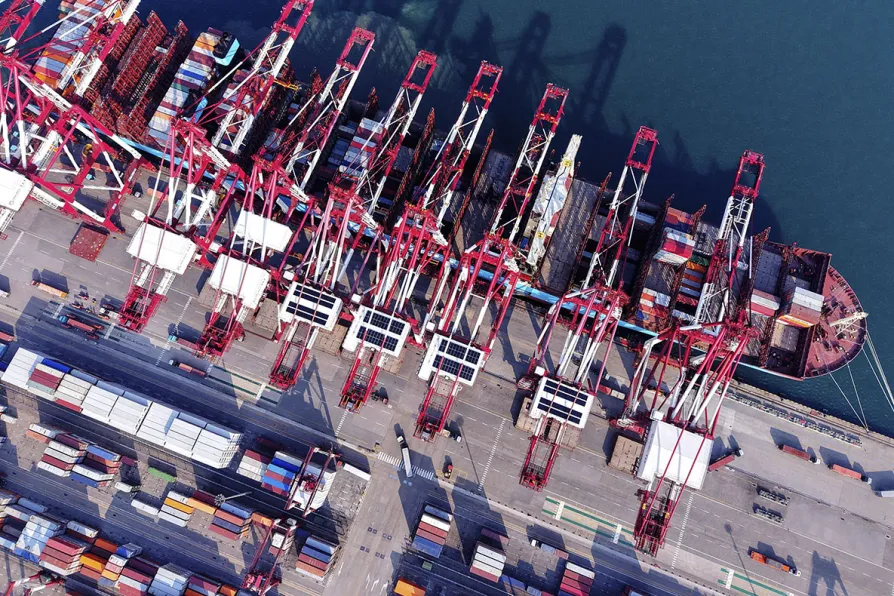
 Trucks move near a vessel loading containers at a container terminal in Qingdao in east China's Shandong province on May 11, 2025
Trucks move near a vessel loading containers at a container terminal in Qingdao in east China's Shandong province on May 11, 2025
CHINESE and United States officials said today that they had reached a deal to roll back most of their recent tariffs and call a 90-day truce in their trade war for more talks on resolving their dispute.
China’s Commerce Ministry said that the two sides agreed to cancel 91 per cent in tariffs on each other’s goods and suspend another 24 per cent in tariffs for 90 days, bringing the total reduction to 115 percentage points.
The ministry called the agreement an important step for the resolution of the two countries’ differences and said that it lays the foundation for further co-operation.
“This initiative aligns with the expectations of producers and consumers in both countries and serves the interests of both nations as well as the common interests of the world,” a ministry statement said.
China hopes that the US will stop “the erroneous practice of unilateral tariff hikes” and work with China to safeguard the development of their economic and trade relations, injecting more certainty and stability into the global economy, the ministry said.
US trade representative Jamieson Greer said that the US agreed to drop its 145 per cent tariff rate on Chinese goods by 115 per cent to 30 per cent, while China agreed to lower its rate on US goods by the same amount to 10 per cent.
Mr Greer and Treasury Secretary Scott Bessent announced the tariff reductions at a news conference in Geneva.
The two officials said that the two sides had set up consultations to continue discussing their trade issues.
Mr Bessent said at the news briefing after two days of talks that the high tariff levels would have amounted to a complete blockage of each side’s goods, an outcome neither side wanted.
“The consensus from both delegations this weekend is that neither side wants a decoupling,” Mr Bessent said.
He said: “We want more balanced trade. And I think that both sides are committed to achieving that.”
The full impact on the complicated tariffs and other trade penalties enacted by Washington and Beijing remains unclear.
The trade war started last month when US President Donald Trump raised tariffs on China to a combined 145 per cent and China retaliated by hitting American imports with a 125 per cent levy.
Tariffs that high essentially amount to the two countries boycotting each other’s products.
The Trump administration has imposed tariffs on countries worldwide, but its fight with China has been by far the most intense.













